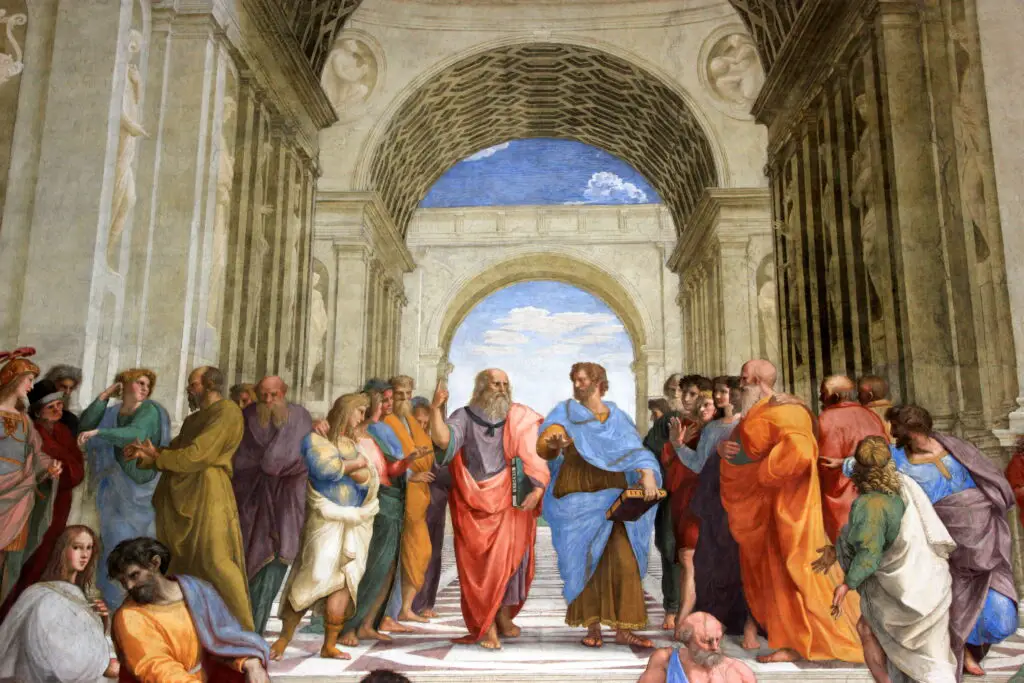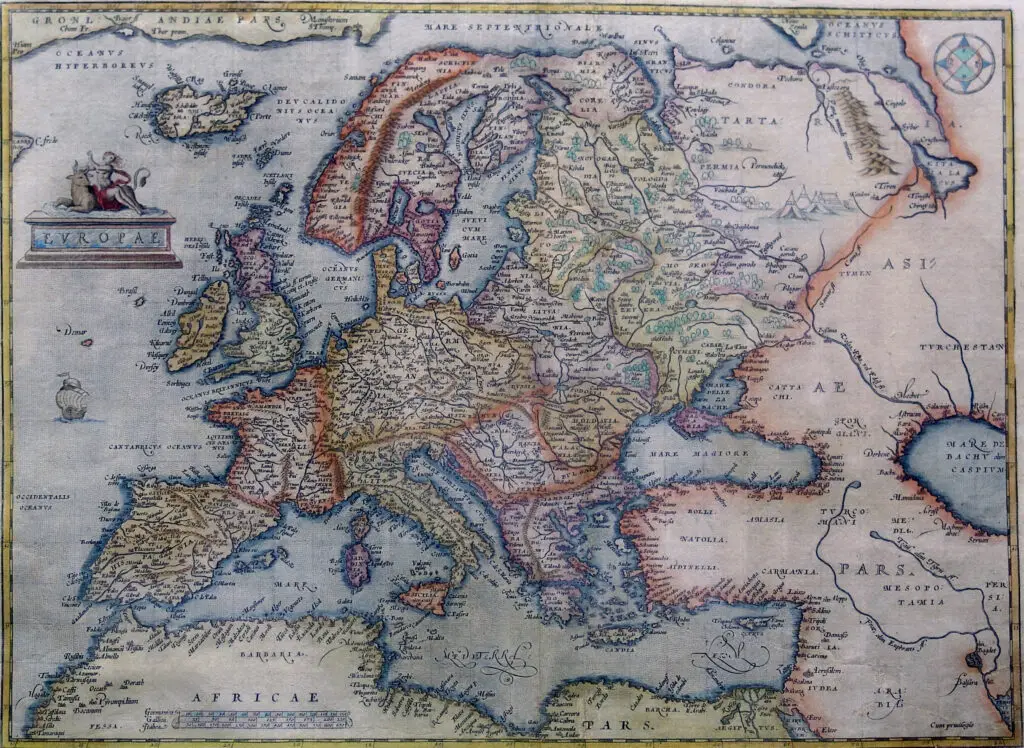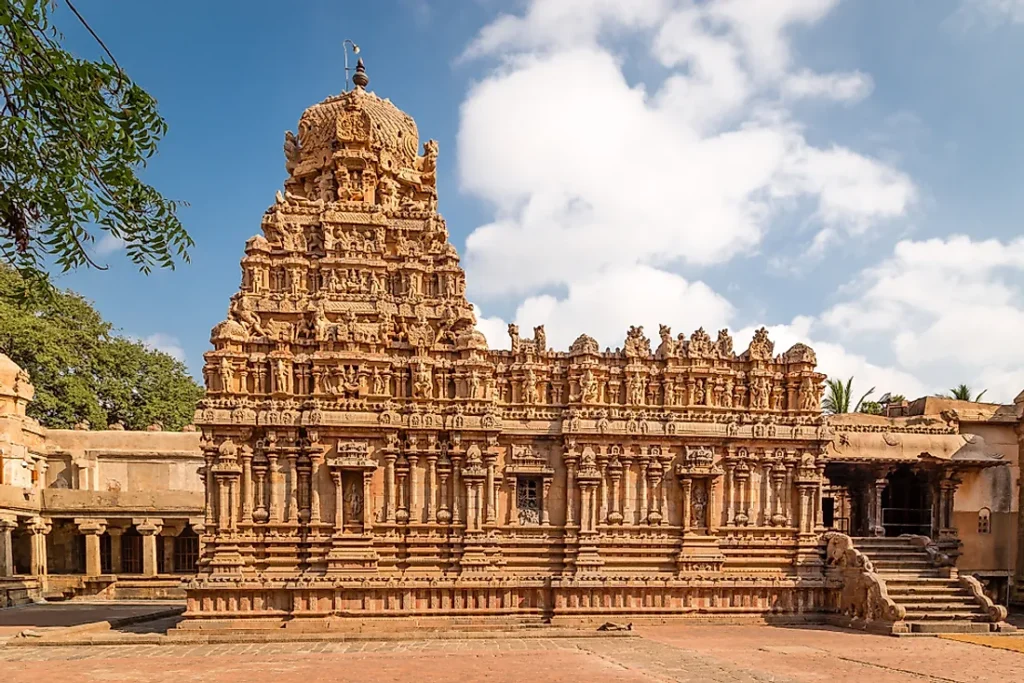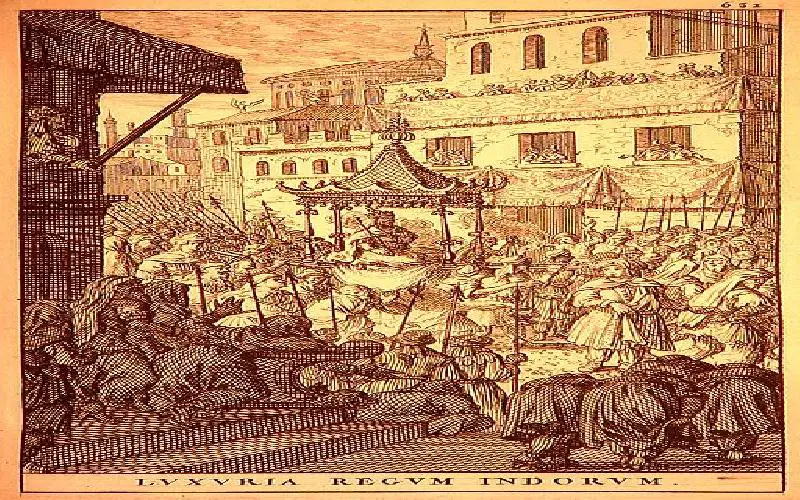Introduction
Indian civilization and European civilizations are two distinct historical and cultural entities that have morphed through the centuries. These two civilizations left an irresistible footprint on human history that shaped economies, societies as well as the political system. While there are some similarities between these two civilizations they also have fundamental differences that separate them. In this article, we’ll examine How Is Indian Civilization Different from European Civilization.
Indian Civilization: A Rich Tapestry of Diversity
Indian culture, which has beginnings that go back hundreds of thousands of years ago, has a thriving blend of many religious beliefs, cultures, and languages. From the early Indus Valley Civilization to the present-day Republic of India, the subcontinent is a melting pot of diverse influences, resulting in a unique blend of cultures and religions.
Diversity in Language
India has a stunning language diversity, with more than 1,600 languages spoken throughout the nation. The Indian Constitution recognizes 22 official languages, which include Hindi, Bengali, Tamil, Telugu, Gujarati, and many more. This diversity of languages is testimony to the multi-cultural nature of Indian civilization, as well as the myriad of different regional identities that live within its borders.
Rich Cultural Heritage
Indian civilization is known for its rich culture which includes music, art and dance, literature, and even philosophy. The ancient epics such as The Ramayana along with the Mahabharata as well as philosophical treatises like the Upanishads and architectural wonders such as the Taj Mahal are just a few of the significant contributions to Indian civilization to the world’s tapestry of culture.
Spiritual Traditions and Religions
One of the main characteristics that define Indian culture is the religious and spiritual practices. Hinduism, Buddhism, Jainism, and Sikhism all grew out of India and shaped the religions and practices of a vast majority of people. Karma, Reincarnation, as well as the quest for spiritual awakening, are fundamental tenets in Indian religions, offering a unique view of death, life, and human existence.
European Civilization: From Ancient Greece to the Modern West

European civilization however is rooted in the past of Greece and has seen a variety of changes over time. It is the European continent that has seen the rise and fall of empires and the emergence of democracy, as well as groundbreaking scientific and artistic innovations that have shaped the present world that we currently live in.
Influence of Greek and Roman Civilization
The early Greeks and Romans set the stage for European civilization and left an unbroken legacy of literature, philosophy, and architecture as well as governance. The idea of democracy, which was first practiced in the early days of Athens was an essential element of Western political thinking.
Renaissance and Enlightenment

The Renaissance was a time of immense intellectual and cultural development throughout Europe led to the rebirth of science, art, and humanism. Works by Leonardo da Vinci, Michelangelo, and Shakespeare continue to be awe-inspiring and exciting. The Enlightenment was a major catalyst for moving European culture forward focusing on individualism, rationality, and an interest in knowledge.
Industrial Revolution and Modernization
The Industrial Revolution, which began in Europe in the 18th century marked a turning point in the history of mankind. It was the catalyst for a surge of technological advances in urbanization, industrialization, and urbanization which transformed European societies and set the foundation for the current world.
How Is Indian Civilization Different from European Civilization?

Socio-Political Structures
Indian civilization as well as European civilizations have distinct social-political structures that have shaped their societies. European civilization, especially in its current model, has been defined by the rise of democratic systems and legality and individual rights. However, Indian civilization has been characterized by its Indian civilization has traditionally adopted a more hierarchical social system and caste distinctions play an important role in determining the way that people interact and how they can benefit.
Religious and Philosophical Traditions
Philosophy and religion play a major part throughout the development of both Indian both European civilizations. There are however fundamental distinctions in how they approach these elements of their lives. Indian civilization is defined by a wide array of spiritual and religious traditions that include Hinduism, Buddhism, Jainism, and Sikhism. They all emphasize the achievement of spiritual enlightenment as well as self-realization as the ultimate purpose of the human experience.
Contrarily, European civilization has been defined by the growth of monotheistic religions, such as Christianity, Judaism, and Islam. These religions put more importance on submitting to God’s will and the realization of eternal salvation. In addition, European philosophy has been more focused on the individual and search for knowledge, whereas Indian philosophy is more focused on what is real as well as the attainment of inner peace.
Art and Culture

Cultural and artistic expression are key elements for each of Indian as well as European civilizations, however, they are distinct in their approaches. Indian culture and art are heavily influenced by religions as well as spirituality and tradition. The artistic styles of India like music, dance literature, and dance are deeply rooted within the country’s spiritual and cultural tradition.
European cultural and artistic expressions in contrast are formed by a variety of influences, including humanism, religion, and individual expression. European art forms, such as sculpture, painting, and literature have been focused on realism and depiction of nature.
Economic Systems
Indian as well as European civilizations have developed distinct economic systems that have developed through time. European civilization is characterized by the growth of industrialization and capitalism, which has led to substantial economic growth and progress. However, India’s economic system has traditionally been focused on small-scale industry and agriculture.
Gender Roles
The gender role of gender in Indian and European civilizations has been radically different. In Indian society, traditional gender roles were firmly established, with both males and females having distinct zones of influence. Women have been historically marginalized by Indian society, and have had little access to education or work opportunities.
Contrarily, European civilization has made important strides toward equality of gender, especially in the last few years. Women are given equal opportunities to study and work opportunities and there is a trend towards gender-neutral policies and practices.
Frequently Asked Questions (FAQs)
1. What was the way Indian as well as European cultures interacted with each other?
Indian as well as European civilizations have enjoyed a long period of interactions, especially during colonial times. European powers like Britain, France, and Portugal established colonies in India and India, which resulted in several economic, cultural, and political exchanges between both cultures.
2. What effect was the impact that Indian civilization had on European civilization?
Indian culture has made a profound impact on European civilization, especially in the area of religion and philosophy. The concepts of karma the concept of reincarnation and non-violence have profoundly influenced the evolution of European philosophical thinking.
3. What are the commonalities that can be found between Indian Indian and European civilizations?
Despite their differences Indian as well as European civilizations share several similarities. Both civilizations share an impressive cultural legacy, that focuses on literature, art, and the study of philosophy. In addition, each civilization has made major technological and scientific contributions.
4. What role did religion play on the horizons of Indian and European civilizations?
Religion has played a major part in the development of both Indian as well as European civilizations. Indian civilization is characterized by a wide variety of spiritual and religious traditions and practices, whereas European civilization was formed by monotheistic religions like Christianity, Judaism, and Islam.
5. What has the system of caste had an impact on Indian civilization?
It has had a profound influence on Indian society, influencing the way people interact, opportunities for economic growth, and power structures in the political realm. Although efforts have been made to eradicate this system of caste, its impact is still evident in different areas of Indian society. It has created the creation of social divides and inequalities which have impeded social mobility, as well as perpetuating discrimination due to birth.
6. What have Indian or European civilizations affected each other’s food?
Indian and European food styles have been influenced by the decade of exchanges of culture. The introduction of spices from India including cinnamon, pepper, and cardamom, had a profound impact on European food during the Age of Exploration. Similarly to that, Indian cuisine has embraced recipes and cooking techniques that were which were brought in by Europeans including potatoes, tomatoes, and baking.
Conclusion
Indian civilization as well as European civilizations, despite sharing some similarities, have distinct features which distinguish them. The richness of diverse cultures, spiritual traditions, and cultural heritage are the hallmarks of Indian civilization, whereas European civilization is distinguished by its advancements in history along with its philosophical foundations as well as political structures.
As these civilizations continue to change in contemporary times, it’s essential to acknowledge their distinct contribution to the human story and to foster a greater appreciation of their different perspectives. By celebrating diversity in culture and encouraging dialog, we can bridge the gap between cultures and build a more connected and peaceful world.
Powerful Ladies in Indian History

[…] How Is Indian Civilization Different from European Civilization? […]
[…] How Is Indian Civilization Different from European Civilization? […]